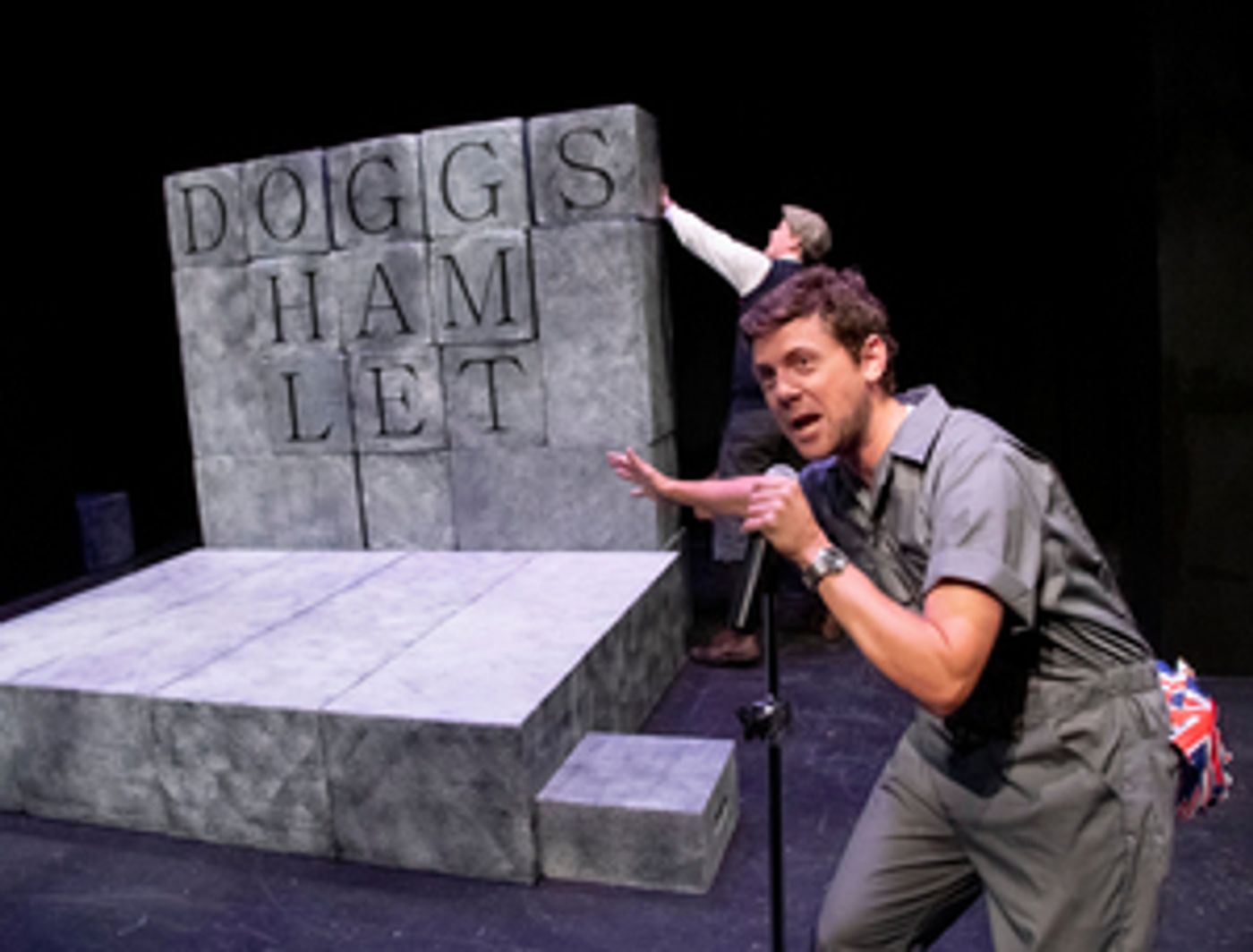Review: Stoppard's word fun with Shakespeare and subversion in DOGG'S HAMLET, CAHOOT'S MACBETH at Potomac Theater Project

Dogg's Hamlet, Cahoot's Macbeth are two early plays by Tom Stoppard which were written to be performed together. Both use Shakespearean text to overtly entertain while being subtly subversive. Presented by the Potomac Theater Project this summer, the double bill is enormously entertaining.
In Dogg's Hamlet, the actors speak in Dogg. This is a language which uses English words with completely different meanings. When three school mates sit down for lunch, one asks, "Undertake sun pelican crash frankly sun mousehole?" From the actions on stage, you know there are trading sandwiches. Mr. Stoppard is teasing us with learning a new language and, in this very short play, some of the words actually will stick.
A delivery man named Easy arrives. He speaks regular English and cannot understand Dogg. Blocks are being delivered and the assembly is a confusion of miscommunication. They are arranged and rearranged, eventually to form a stage. A very edited version of Hamlet will then be performed. The riff here is that Shakespeare's language is unintelligible to students. A fifteen minute farce is then presented with some famous lines intact.
The second short play is Cahoot's Macbeth. Czechoslovakian by birth, Stoppard met playwright Pavel Kohout who had been banned by authorities from working. In 1978 he created LRT - living room theater. They opened with Macbeth with five performers and one suitcase. Stoppard pointed out this inspiration. His recreation, however, is semi-serious and comedic, not "a fair representation of Kohout's elegant seventy-five minute version."
Set in the late 1970's, this Macbeth is staged in an apartment in Prague. An inspector from the government will interrupt the show to sniff out illegal activities, namely any unauthorized (and therefore, subversive) productions. Easy shows up in this play to delivers blocks again, only now he only speaks Dogg. The homeowner notes "we're not sure if it's a language or a clinical condition."
That character crosses the two plays and Stoppard's point is clear. Dogg is a form of Resistance. In front of the totalitarian regime, a secret coded language could be used to inspire and oppose suppression. The play was intended as a tribute to Kohout and others forced to endure such conditions. The backstory is essential to a deeper appreciation of these plays but they are certainly fun in their own right.
Fans of Shakespeare will certainly delight in the liberties taken with the original text. Fans of well-directed, strongly acted plays will find this funhouse immensely satisfying. Director Cheryl Faraone has assembled an excellent cast who pops in and out of every conceivable entrance and exit. The pendulum swung between tragedy and ridicule is remarkably effective.
Now is a very good time to experience this playfully experimental work. Our current political climate more than hints toward authoritarian and dictatorial behavior. Words are used as powerful weapons. It's quite comforting to be reassured that words can also be manipulated for good. I plan to use "vanilla squirrel" every time I mean "rotten bastard." Thanks for the text translations, Mr. Stoppard!
Reader Reviews

Videos

